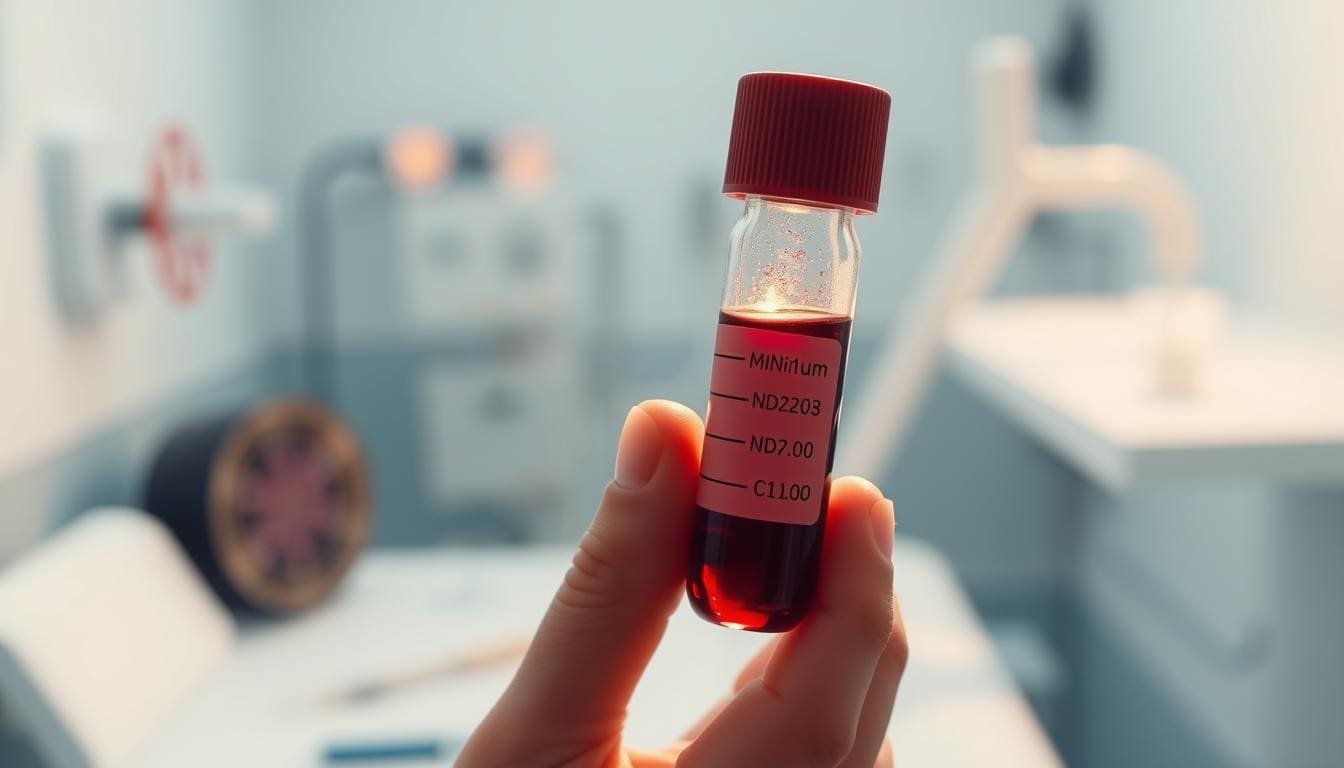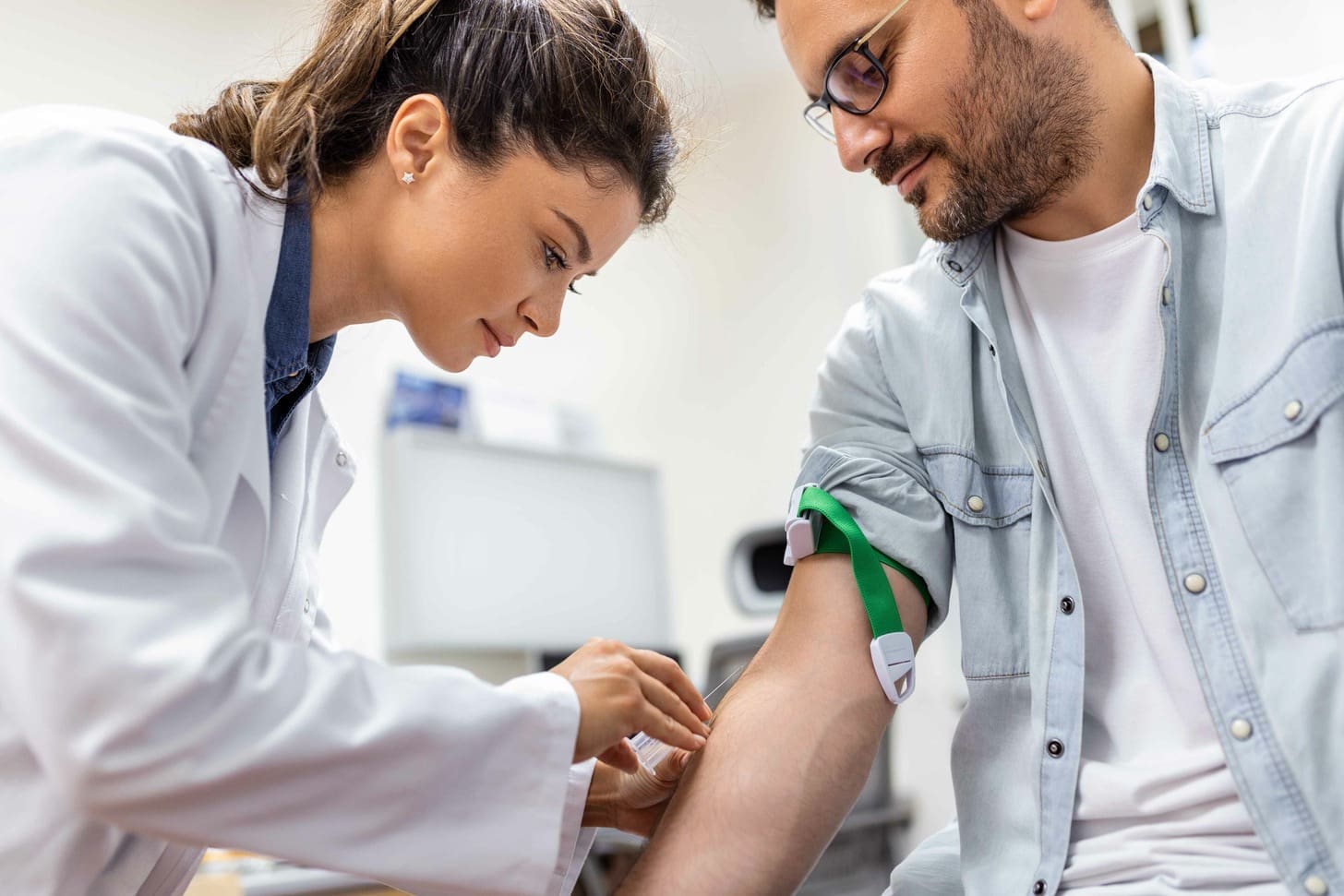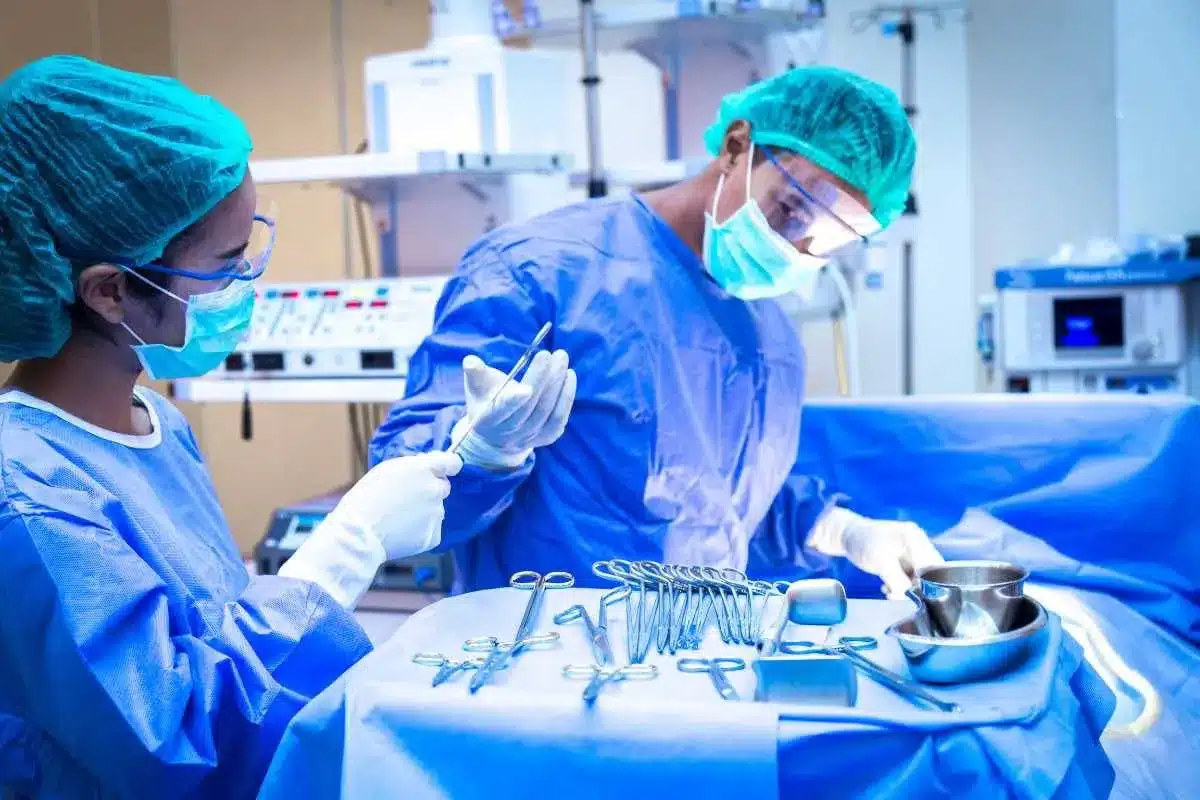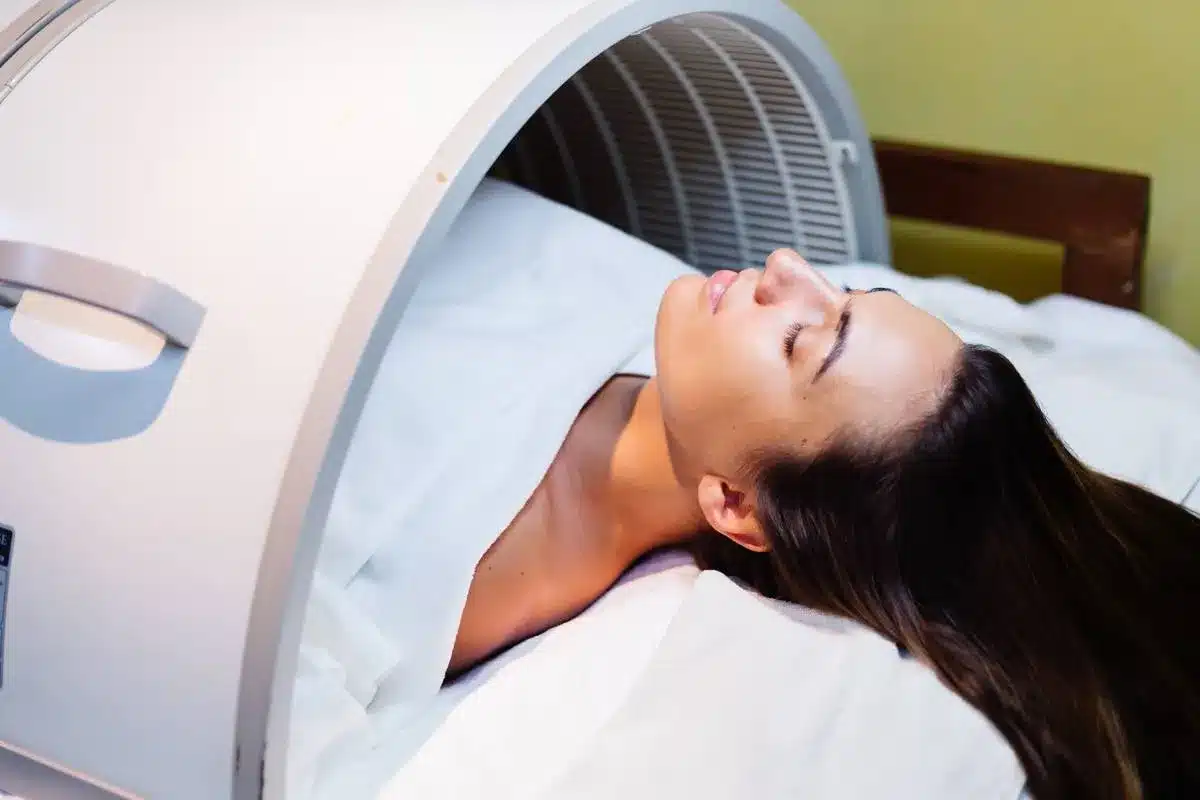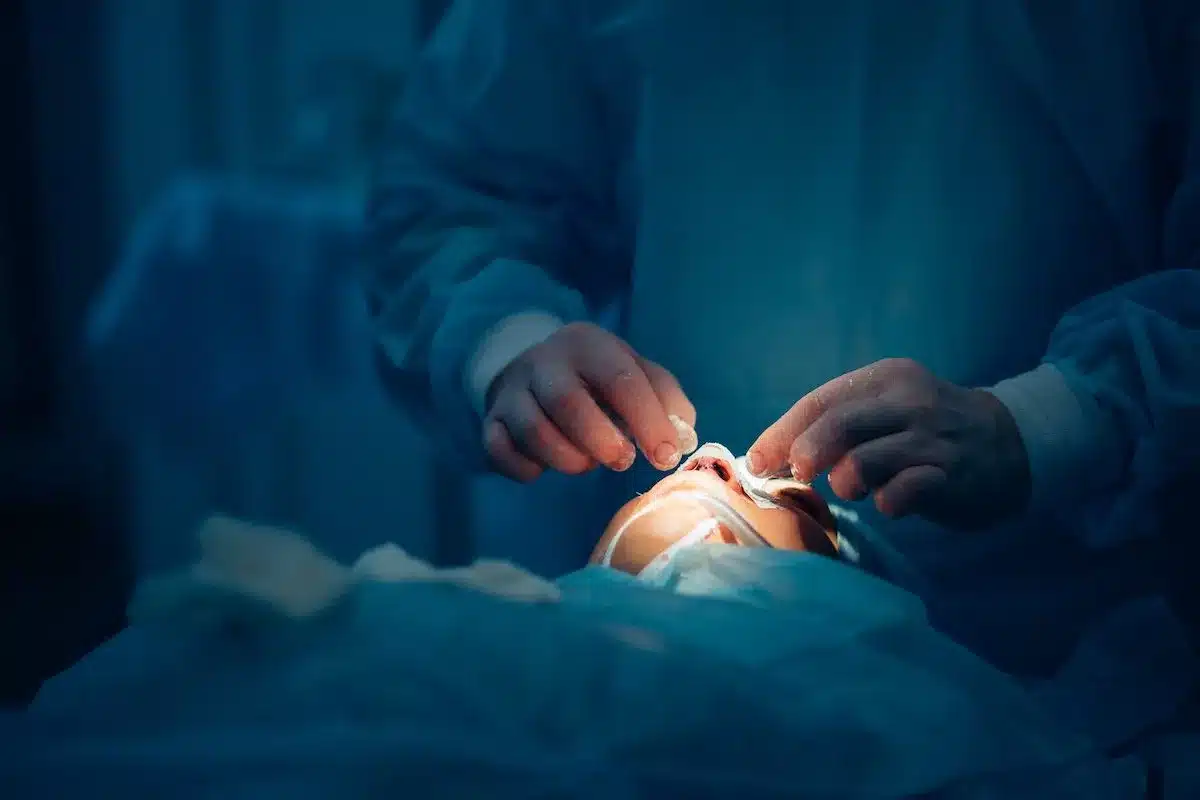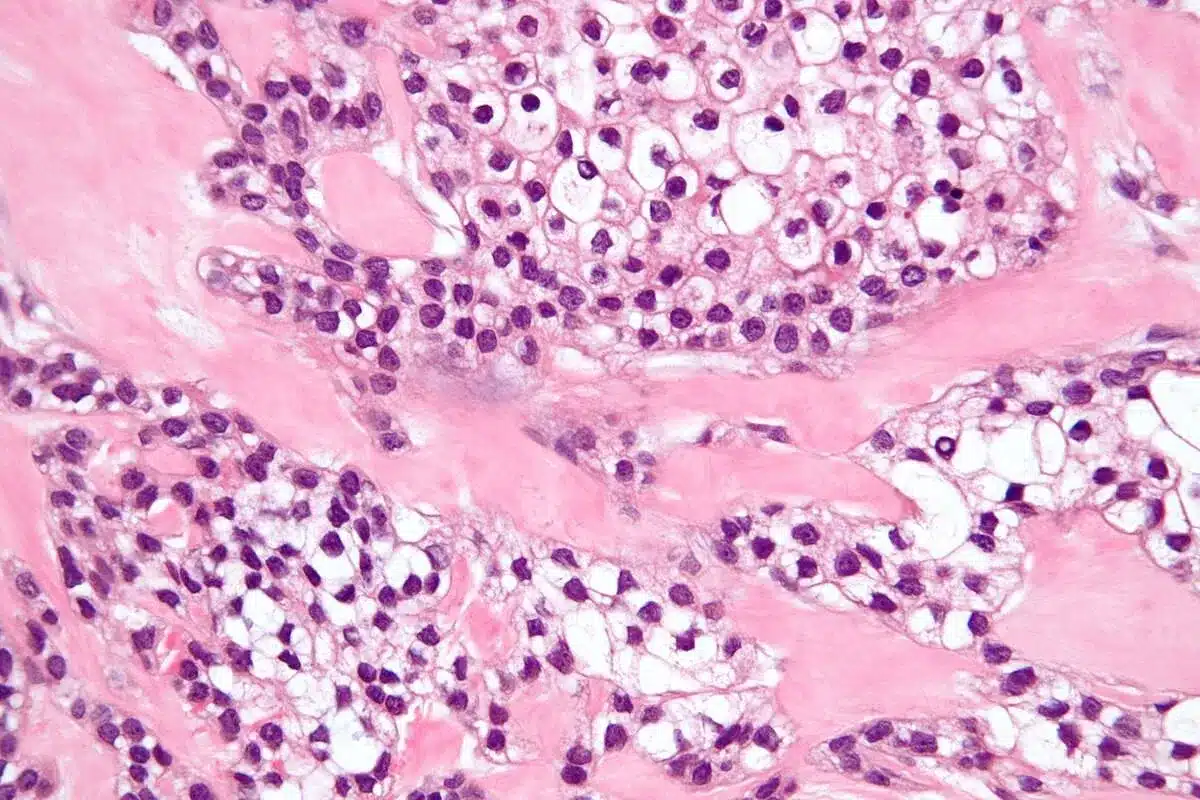Kidney Cysts: Types, Symptoms, Diagnosis, and Treatment Options
A kidney cyst is a fluid-filled sac that develops either within the kidney or on its surface. Most kidney cysts are benign and vary in size, from small and harmless to larger cysts that may cause symptoms or complications. They are commonly discovered incidentally during medical imaging tests. Kidney cysts can be classified as simple (usually benign and asymptomatic) or complex (which may have irregular shapes or solid components and require closer evaluation).
This article is designed to give you a comprehensive understanding of kidney cysts and how to manage them effectively. We’ll cover the different types and causes, symptoms and methods of diagnosis, available treatment options, possible complications, and preventive measures. Our goal is to provide clear answers to all your questions about kidney cysts.

Types and Causes of Kidney Cysts
To fully understand kidney cysts, it’s important to learn about their different types and what causes them. Kidney cysts can range from simple, harmless fluid-filled sacs to more complex conditions, such as the inherited disorder Polycystic Kidney Disease (PKD), or cysts acquired due to other health issues. Each type has distinct features and implications. Understanding these differences will help guide the best approach to management and treatment for your individual needs.
Simple Kidney Cysts Explained
Simple cysts are common, benign fluid-filled sacs that can develop in the kidneys. These cysts typically pose no immediate health threat and often go unnoticed. They may generally considered as harmless. But still, understanding these benign cysts is essential for distinguishing them from more complex kidney conditions and making informed decisions about your health.
Polycystic Kidney Disease (PKD)
Polycystic Kidney Disease (PKD) is a genetic disorder characterized by the development of fluid-filled cysts in the kidneys. There are two main types: Autosomal Dominant PKD (ADPKD), typically diagnosed in adulthood, and Autosomal Recessive PKD (ARPKD), usually diagnosed in childhood. PKD can lead to kidney problems, high blood pressure, and, in severe cases, kidney failure. Management includes symptom control, blood pressure management, and, in advanced cases, dialysis or kidney transplantation.
Acquired Kidney Cysts
Acquired kidney cysts are fluid-filled sacs. They develop in the kidneys due to factors like aging, kidney injuries, or medication use. They generally don’t cause symptoms and they are found incidentally through imaging. Besides they usually don’t cause such things, in some cases they may cause pain or other comlications. So if they cause discomfort you may have a treatment for draining the cyst or surgivally removing it.
Kidney Cyst Symptoms and Diagnosis
Early detection of kidney cysts is important. In this section, we’ll explore how kidney cysts are diagnosed, with a focus on the key imaging and diagnostic tests used to confirm their presence.
Detecting Kidney Cysts
Kidney cysts are usually detected using advanced imaging techniques such as ultrasound, CT scans, or MRI scans. Understanding how each of these diagnostic tools works can help you and your healthcare team achieve an accurate diagnosis and develop a treatment plan tailored to your needs.
Common Symptoms and Early Warning Signs of Kidney Cysts
Symptoms of kidney cysts can vary from person to person. They may include pain or discomfort in the back or side, changes in urination, or complications such as infections or bleeding. Noticing these signs early allows you to seek medical attention promptly, which can help prevent potential complications and ensure timely treatment.
Effective Treatment Options for Kidney Cyst
Once kidney cysts are diagnosed, it’s important to consider the best treatment options. This section offers expert insights into a range of management strategies, including monitoring, drainage procedures, and surgical removal. We’ll help guide you through these choices, so you can make the most informed decisions for your specific needs.
Monitoring and Watchful Waiting
Not all kidney cysts require immediate treatment. If they aren’t causing discomfort or significant health issues, your doctor may recommend simply monitoring the cysts with regular check-ups. Should any changes occur”such as cyst growth, pain, infection, or urinary problems”your doctor can suggest appropriate treatment to address these new developments before they become more serious.
Drainage Procedures for Symptomatic Kidney Cysts
If a kidney cyst causes symptoms or complications, your doctor may recommend drainage procedures. These often involve minimally invasive techniques such as percutaneous cyst aspiration or sclerotherapy. Knowing what to expect during and after these procedures can ease your concerns and help you make well-informed decisions about your care.
Surgical Removal of Kidney Cysts
For complex or symptomatic kidney cysts, your doctor may recommend surgical removal. This procedure often uses minimally invasive techniques. Your healthcare team will explain each step, discuss the methods involved, and outline what to expect during recovery. Open conversations with your doctor and understanding the details of the surgery can help you feel well-prepared, both physically and mentally.
Managing Polycystic Kidney Disease (PKD)
Unlike kidney cysts that may be treated with one-time procedures, Polycystic Kidney Disease (PKD) requires ongoing, long-term management. Effective care for PKD includes medication, healthy lifestyle changes, and regular monitoring. With expert guidance and consistent management, people with PKD can support their overall health and improve their quality of life.
Complications and Risk Factors of Kidney Cysts
Understanding the possible complications and risk factors for kidney cysts is essential for proactive care. Being well informed helps you take preventive steps and respond quickly if issues arise. In the following sections, we’ll discuss the main risks and complications to watch for so you can better protect your kidney health.
Understanding Complications Linked to Kidney Cysts
Kidney cysts can sometimes lead to complications. They may become infected, causing pain and fever, or rupture, resulting in bleeding within the kidney. Because the kidneys filter blood and produce urine, related symptoms can appear if there are problems. In rare cases, large cysts may press on nearby organs or tissues and affect kidney function. Regular monitoring and early treatment can help prevent or manage these complications effectively.
Identifying Risk Factors for Kidney Cysts
Several factors can increase your risk for developing kidney cysts. These include older age, a family history of kidney cysts or related genetic conditions, and having polycystic kidney disease (PKD). Recognizing these risks can help with earlier screening and timely detection. Common risk factors include:
- Age: The likelihood of developing kidney cysts increases as you get older, especially for people over 50. They are often considered a normal part of the aging process.
- Genetics: Having a family history of kidney cysts or polycystic kidney disease (PKD) greatly increases your risk. PKD is an inherited disorder characterized by the presence of multiple cysts in the kidneys.
- Gender: Men are slightly more likely than women to develop kidney cysts.
- Kidney Disorders: Certain kidney diseases and conditions, such as medullary sponge kidney or tuberous sclerosis complex, increase the risk of developing kidney cysts.
- High Blood Pressure (Hypertension): Uncontrolled high blood pressure can increase the likelihood and growth of kidney cysts. It is both a risk factor for developing kidney cysts and can also result from having cysts.
- Chronic Kidney Disease (CKD): People with chronic kidney disease”which can result from conditions like diabetes or high blood pressure”are more likely to develop kidney cysts.
- Smoking: Smoking is linked to a higher risk of developing kidney cysts and kidney disease overall.
- Certain Medications: Long-term use of specific medications, like nonsteroidal anti-inflammatory drugs (NSAIDs), may contribute to the development of kidney cysts in some cases.
Living with Kidney Cysts
Living with kidney cysts often means taking a proactive role in your own care. Most kidney cysts are asymptomatic and don’t require immediate treatment, but regular check-ups and imaging tests are important for monitoring any changes. If symptoms develop, healthcare professionals can provide advice on pain management and the most appropriate interventions. Staying engaged with your doctor and following their recommendations supports better long-term kidney health.
Lifestyle Tips for Kidney Cyst Management
Taking control of your kidney health starts with self-care and following your doctor’s advice. Good daily habits can help you prevent complications and keep your cysts from becoming problematic. Here are some tips to help protect and support your kidneys:
- Stay Hydrated: Drinking enough water is vital for kidney health, as it helps flush waste products and toxins from your body. Aim for at least 8“10 cups of water daily, or follow the specific guidance from your healthcare provider.
- Balanced Diet: Eat a wide variety of fruits, vegetables, whole grains, lean proteins, and healthy fats to support kidney health. Be sure to limit your sodium (salt) intake, since high sodium can raise blood pressure and put extra stress on your kidneys.
- Monitor Blood Pressure: Regularly check your blood pressure, as high blood pressure can contribute to the growth of kidney cysts and other kidney issues. Follow your healthcare provider’s plan for managing blood pressure, which may involve medication and healthy lifestyle changes.
- Regular Exercise: Stay active with regular physical exercise, which helps control blood pressure, boost circulation, and support overall health. Always check with your healthcare provider before starting a new exercise routine, especially if you have any existing health conditions.
- Avoid Smoking: If you smoke, try to quit. Smoking can damage your kidneys and make cyst-related issues worse.
- Limit Alcohol: Drinking too much alcohol can put extra strain on your kidneys and may interact with certain medications. If you choose to drink, do so in moderation and always follow your healthcare provider’s recommendations.
- Manage Stress: Ongoing stress can affect your overall health and kidney function. Try stress-reducing activities like mindfulness, meditation, yoga, or other relaxation exercises to support your well-being.
- Medication Management: If you are taking medicines for other health conditions, always follow your prescribed regimen closely. Speak with your healthcare provider about any potential interactions with your medications to keep your kidneys healthy and safe.
- Regular Check-ups: Keep up with scheduled follow-up visits with your healthcare team. These appointments allow your doctors to monitor your kidney cysts with imaging and offer personalized advice based on your health needs.
- Stay Informed : Learn about kidney cysts, their possible complications, and the warning signs. Being well informed helps you recognize problems early and take prompt action when needed.
Dietary Recommendations for Kidney Cyst Patients
While there aren’t strict dietary rules for kidney cysts, a balanced diet low in sodium and saturated fats can help maintain kidney health. Reducing sodium can help control blood pressure, while staying well-hydrated also supports proper kidney function. Everyone’s needs are different, so it’s important to consult a healthcare professional for personalized nutrition advice”especially if you have other kidney conditions that require specific dietary care.
Prevention and Long-Term Outlook for Kidney Cysts
While it’s not always possible to prevent kidney cysts”especially those related to aging”you can help lower your risk by avoiding known risk factors. Prevention focuses mainly on managing underlying conditions like high blood pressure or diabetes. The long-term outlook for people with kidney cysts can vary widely, depending on factors such as cyst size, symptoms, and any complications. That’s why regular medical follow-ups are essential for monitoring changes and allowing for early intervention if needed.
Can Kidney Cysts Be Prevented?
In most cases, kidney cysts cannot be prevented, especially when they are due to aging or genetic factors. However, maintaining a healthy lifestyle and effectively managing any underlying health conditions may help reduce the risk of complications. Despite these efforts, the actual formation of kidney cysts is generally not preventable.
Prognosis and Long-Term Outlook for Kidney Cyst Patients
The prognosis for individuals with kidney cysts varies. Many people with small, asymptomatic cysts can lead normal lives without significant complications. However, those with larger cysts, symptoms, or associated kidney problems may require ongoing management and potentially interventions like cyst drainage or surgery. Regular medical evaluations are essential to assess the long-term outlook for each individual.
Seeking Medical Guidance and Support for Kidney Cysts
Navigating kidney cysts often requires guidance and support from healthcare professionals. Here are some expert tips to help:
Know when to seek medical advice: Consult your healthcare provider if you experience new or worsening symptoms, such as pain, blood in your urine, or other concerns about your kidney health.
Prepare for appointments: Keep a record of your symptoms, medications, and any questions you may have. Bringing this information will help you and your doctor make the most of your visit.
Communicate openly: Share any changes in your health and discuss your treatment options or concerns openly with your care team. Open communication ensures your care is tailored to your needs.
Rely on professional support: Regular visits to your healthcare team, combined with their expert insights, play a central role in long-term kidney cyst management.
Seeking the right guidance from medical professionals is crucial for effective management and peace of mind.
When to Consult a Healthcare Professional for Kidney Cysts
It is advisable to consult a healthcare professional if you experience symptoms such as persistent pain, blood in the urine, or if you have concerns about kidney cysts. Additionally, individuals with known kidney cysts should maintain regular follow-up appointments with their healthcare team to monitor changes in cysts and overall kidney health.
Support Groups and Resources for Kidney Cyst Patients
Support groups and resources can be invaluable for individuals dealing with kidney cysts. These organizations provide information, emotional support, and opportunities to connect with others who have similar experiences. Notable resources include the PKD Foundation for those affected by Polycystic Kidney Disease, as well as local support groups that may be available for people with kidney cysts.
* Liv Hospital Editorial Board has contributed to the publication of this content .
* Contents of this page is for informational purposes only. Please consult your doctor for diagnosis and treatment. The content of this page does not include information on medicinal health care at Liv Hospital .
For more information about our academic and training initiatives, visit Liv Hospital Academy
Frequently Asked Questions
What is a kidney cyst?
A kidney cyst is a fluid-filled sac that forms inside or on the surface of a kidney. Most are simple and harmless, but some can grow larger or cause complications that require medical attention.
What causes kidney cysts?
Kidney cysts can result from aging, genetic conditions such as Polycystic Kidney Disease (PKD), or other factors like kidney injuries and certain medications.
What symptoms can kidney cysts cause?
While many kidney cysts cause no symptoms, others may lead to pain in the back or side, fever, changes in urination, or blood in the urine if complications occur.
How are kidney cysts diagnosed?
Doctors typically use imaging tests such as ultrasound, CT scans, or MRI scans to detect and monitor kidney cysts accurately.
What are the treatment options for kidney cysts?
Treatment depends on size and symptoms. Options include regular monitoring, drainage procedures for fluid removal, or surgical removal for large or complex cysts.
Can kidney cysts lead to complications?
Yes. In some cases, cysts can become infected, rupture, or press on nearby organs, potentially affecting kidney function. Regular check-ups can help prevent these issues.
Can kidney cysts be prevented?
Prevention is not always possible, but maintaining a healthy lifestyle, staying hydrated, controlling blood pressure, avoiding smoking, and managing chronic conditionscan help protect kidney health.


